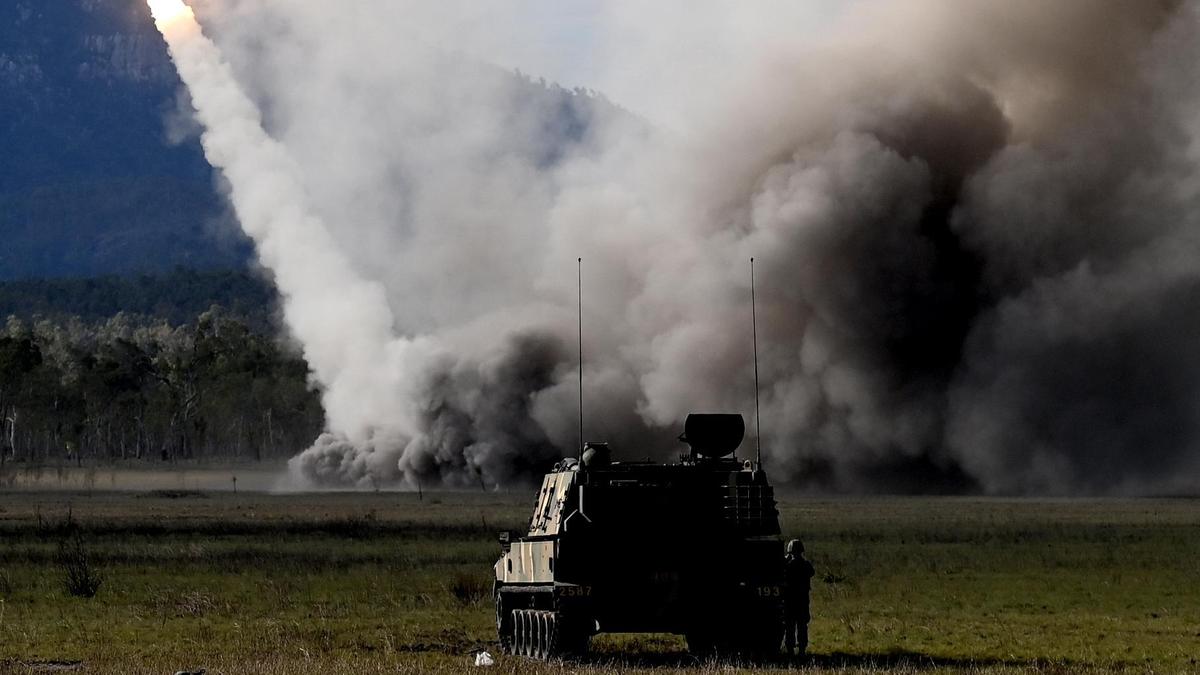The “real issue” with Australia’s defence spending is not if the Albanese government is splashing more cash but whether it is “enough” and flowing “fast enough”, an ex-spy chief says.
Duncan Lewis headed the Australian Security Intelligence Organisation (ASIO) from 2014 to 2019.
Since departing the country’s domestic spy service, he has become chair of the European Australian Business Council and the Australian arm of weapons maker Thales.
Mr Lewis said on Monday there was no doubt Labor had increased the defence budget since coming to power.
“The government has increased defence expenditure and spending over the last couple of years, and the projections going forward continue that increase,” he told the ABC.
“The real issue is whether it is enough and whether it is fast enough.”
Mr Lewis noted that the defence budget was sitting about 2 per cent of GDP or $59bn.
Under Labor’s spending commitments, that would increase to about 2.35 per cent of GDP by 2034 – the same year the Albanese government has warned a major conflict could break out.
At roughly $100bn in the space of a decade, Mr Lewis said 2.35 per cent was “a sizeable increase”.
“But the question is, is it enough to have the kind of defence force that we might require in the future?” he said.
Anthony Albanese is facing domestic and international calls to boost the defence budget, with the US warning of a potentially “imminent” threat from China in the Indo Pacific.
But the Prime Minister has resisted, making Australia an outlier in the West – a position highlighted by NATO’s decision last week to dramatically hike military spending to 5 per cent of GDP.
The Trump administration has asked Australia to lift spending to 3.5 per cent.
Both Labor and the opposition have pushed back on that target, with the Coalition proposing 3 per cent instead.
Asked point blank if 2.35 per cent of GDP was enough, Mr Lewis said he thought Australia would need to front up more.
“I’m of the view that if we are going to run a fleet of nuclear-powered submarines, together with an effective defence force that’s capable of doing the kind of things that we expect might be required in the future, there will have to be an increase in due course,” he said.
“But look, I’m cognisant of the fact that there are competing challenges for the public purse, and it’s up to the government to get their balance right.
“But I think there is a sense of urgency in this matter, which is not universally being exhibited, and I think that needs to be something that we should pay more attention to.”
Mr Lewis also said defence companies were not getting the “certainty” needed to do business in Australia.
“There is a concern that we are unable to get into long-term, reliable partnerships with government,” he said.
“The defence industry in Australia requires long term, regular contractual arrangements if we are to develop sovereign defence capability, and that is a stated objective of the government.
“You can’t have just episodic buys and expect defence companies to continue operating in Australia.”
